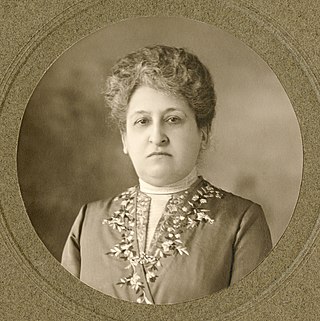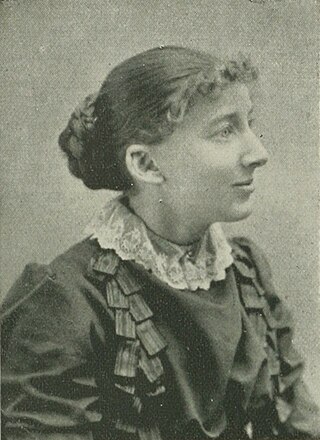Related Research Articles

Lewiston is the second most populous city in the U.S. state of Maine and the most central city in Androscoggin County. The city lies halfway between Augusta, the state's capital, and Portland, the state's most populous city. It is one-half of the Lewiston-Auburn Metropolitan Statistical Area, commonly referred to as "L/A." or "L-A." Lewiston exerts a significant impact upon the diversity, religious variety, commerce, education, and economic power of Maine. It is known for an overall low cost of living, substantial access to medical care, and a low violent-crime rate. In recent years, the city of Lewiston has also seen a spike in economic and social growth. While the dominant language spoken in the city is English, it is home to a significant Somali population as well as the largest French-speaking population in the United States while it is second to St. Martin Parish, Louisiana, in percentage of speakers.
This is a list of notable events in the history of LGBT rights that took place in the year 1993.
The London School of Medicine for Women (LSMW) established in 1874 was the first medical school in Britain to train women as doctors. The patrons, vice-presidents, and members of the committee that supported and helped found the London School of Medicine for Women wanted to provide educated women with the necessary facilities for learning and practicing midwifery and other branches of medicine while also promoting their future employment in the fields of midwifery and other fields of treatment for women and children.

Aletta Henriëtte Jacobs was a Dutch physician and women's suffrage activist. As the first woman officially to attend a Dutch university, she became one of the first female physicians in the Netherlands. In 1882, she founded the world's first birth control clinic and was a leader in both the Dutch and international women's movements. She led campaigns aimed at deregulating prostitution, improving women's working conditions, promoting peace and calling for women's right to vote.
This is a timeline of reproductive rights legislation, a chronological list of laws and legal decisions affecting human reproductive rights. Reproductive rights are a sub-set of human rights pertaining to issues of reproduction and reproductive health. These rights may include some or all of the following: the right to legal or safe abortion, the right to birth control, the right to access quality reproductive healthcare, and the right to education and access in order to make reproductive choices free from coercion, discrimination, and violence. Reproductive rights may also include the right to receive education about contraception and sexually transmitted infections, and freedom from coerced sterilization, abortion, and contraception, and protection from practices such as female genital mutilation (FGM).

Lesbian, gay, bisexual, and transgender (LGBT) persons in the U.S. state of Maine enjoy the same rights as non-LGBT people, including the ability to marry and adopt. Same-sex marriage has been recognized in Maine since December 2012, following a referendum in which a majority of voters approved an initiative to legalize same-sex marriage. Discrimination on the basis of sexual orientation and gender identity is prohibited in the areas of employment, housing, credit and public accommodations. In addition, the use of conversion therapy on minors has been outlawed since 2019.
Margaret Craven is an American politician from Maine. Craven served as a Democratic State Senator from Maine's 16th District, representing Lewiston. She was first elected to office in 2002, when she won a seat in the Maine House of Representatives. She served in the House from 2002 to 2008, when she was elected to the Maine State Senate. She was re-elected in 2010 and 2012. In February 2014, Craven announced her retirement from Maine politics following the 2014 election, citing the need to take care of her ailing husband.

Rosa A. González, RN, was a nurse, author, feminist and activist. She established various health clinics throughout Puerto Rico and was the founder of The Association of Registered Nurses of Puerto Rico. In 1929, Gonzalez wrote a book titled Los Hechos Desconocidos, in which she denounced the discrimination against women and nurses in Puerto Rico. González’s book convinced James R. Beverley, the Interim Governor of Puerto Rico, to sign Ley 77 in May 1930, which established a Nurses Examining Board. In 1978, she was the first recipient of the Public Health Department of Puerto Rico Garrido Morales Award.

Shenna Lee Bellows is an American politician and a non-profit executive director, best known for her work with the American Civil Liberties Union (ACLU). She is the 50th Maine secretary of state. On December 2, 2020, the Maine Legislature elected her to be Maine secretary of state. She is executive director of the Holocaust and Human Rights Center of Maine.

Mary Hancock McLean was a physician and missionary. Born to Elijah McLean, a physician, and Mary Stafford, she enjoyed a privileged childhood with academic opportunities uncommon for girls of her time period. After graduating from the University of Michigan Medical School, she became the first woman to hold an official position at the St. Louis Female Hospital and the first woman admitted to the St. Louis Medical Society.

Formal education for women in Iran began in 1907 with the establishment of the first primary school for girls. Education held an important role in Iranian society, especially as the nation began a period of modernization under the authority of Reza Shah Pahlavi in the early 20th century when the number of women's schools began to grow. By mid-century, legal reforms granting women the right to vote and raising the minimum age for marriage offered more opportunities for women to pursue education outside the home. After periods of imposed restrictions, women's educational attainment continued its rise through the Islamification of education following the Iranian Revolution of 1979, peaking in the years following radical changes in the curriculum and composition of classrooms. By 1989, women dominated the entrance examinations for college attendance.
Sharon E. Barker is a Canadian-American women's rights activist, women's health advocate, and feminist. She is the founding director of the Women's Resource Center at the University of Maine and one of the founders and first president of the Mabel Sine Wadsworth Women's Health Center in Bangor. For over 30 years she has advocated for women and girls in the areas of health care, gender equality, sexual assault, and reproductive rights. She was inducted into the Maine Women's Hall of Fame in 2009.
This article addresses the legal and regulatory history of transgender and transsexual people in the United States including case law and governmental regulatory action affecting their legal status and privileges, at the federal, state, municipal, and local level, and including military justice as well.

Hendrika Bestebreurtje Cantwell is a German-born American retired physician, professor emerita of pediatrics at the University of Colorado Denver, advocate for abused and neglected children, and parenting educator. She was one of the first physicians in the United States to work for a child protection agency, serving with the Denver Department of Social Services from 1975 to 1989. Her work there brought her in contact with an estimated 30,000 cases of suspected child abuse and she testified as an expert witness in thousands of court cases. An author of peer-reviewed journal articles, book chapters, and teaching manuals on the detection and treatment of child abuse, she has also conducted workshops and training programs for professionals throughout Colorado. She was inducted into the Colorado Women's Hall of Fame in 1990.

Alice Armand Ugón Rivoir was an Uruguayan pediatrician, co-founder of the Sociedad Uruguaya de Pediatría.
Portia Grenfell Holman was an Australian child psychiatrist who practiced in London.

Alice May Douglas was an American author of poetry, children's literature, and non-fiction, as well as a newspaper editor.
Abortion in New Mexico is legal up to birth without restrictions. The number of abortion clinics in New Mexico has declined over the years, with 26 in 1982, 20 in 1992 and 11 in 2014. There were 4,500 legal abortions in 2014. There were 7 facilities providing abortion in New Mexico in 2017, and 6 of those were clinics. In 2017, 91% of New Mexico counties had no clinics that provided abortions, and 48% of New Mexico women lived in those counties.

Mary A. Cowan, known as The Borgia of Maine, was an American serial killer who poisoned two husbands and four children between 1884 and 1894, and attempted to murder a third husband. Convicted of killing her step-son Willis Cowan in September 1894, Cowan was sentenced to life imprisonment and sent off to the Maine State Prison, where she died a few years later from an unspecified illness.
Karoline Breitinger was a German physician who became the first female doctor in Württemberg.
References
- ↑ "Girl Challenges Stuyvesant High's All-Boy Policy". The New York Times. January 21, 1969. ProQuest 118499447.
- 1 2 3 4 5 6 7 Laurie Gwen Shapiro (January 26, 2019). "How a Thirteen-Year-Old Girl Smashed the Gender Divide in American High Schools". The New Yorker.
- ↑ Serena Mayeri (2011). Reasoning from Race. Harvard University Press. pp. 58–59. ISBN 9780674061101.
- ↑ "Stuyvesant History – Enter the First Girls". Stuyvesant High School.
- 1 2 David Mager (June 24, 2013). "Alice Gets Her Stuyvesant Diploma 40 Years Late". Huffington Post.
- ↑ "Dr. Alice Haines". U.S. News & World Report.
- 1 2 Lindsay Tice (January 7, 2013). "Free clinic opens at Trinity Jubilee Center in Lewiston". Bangor Daily News.